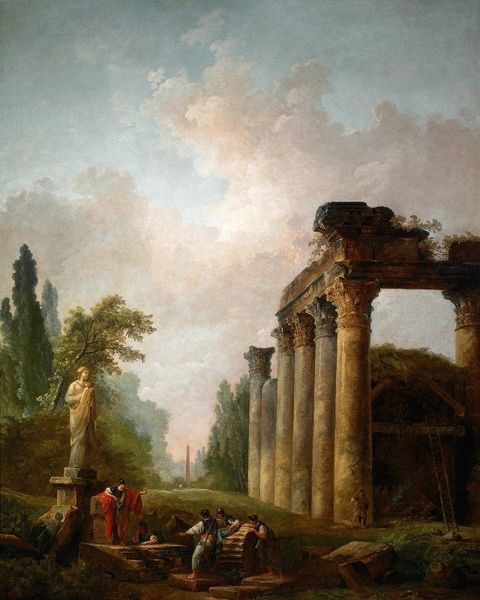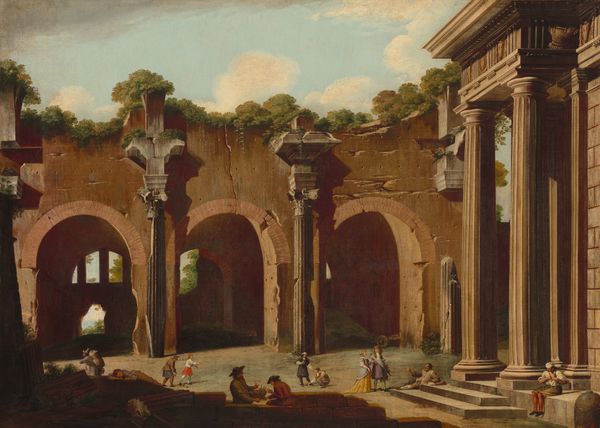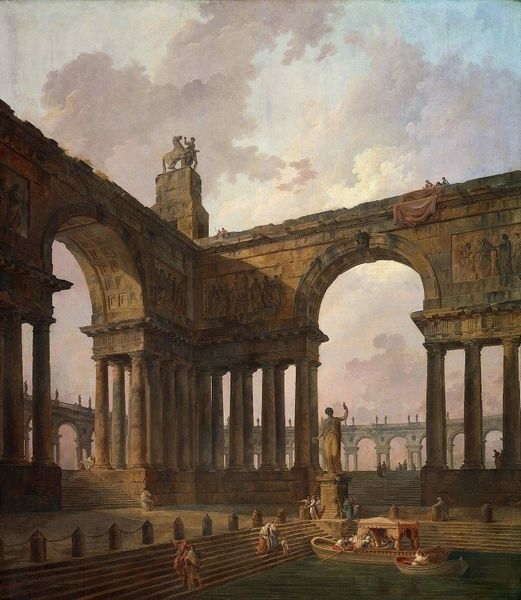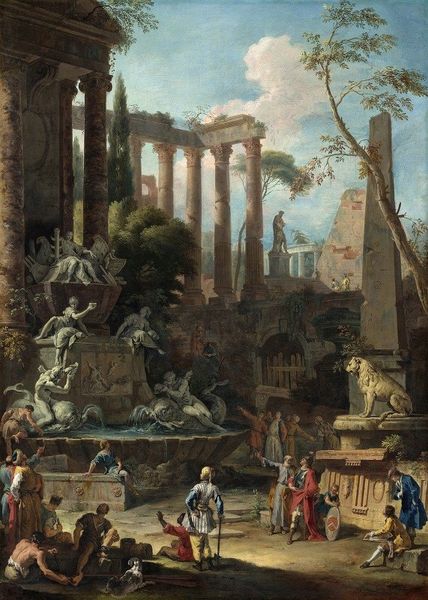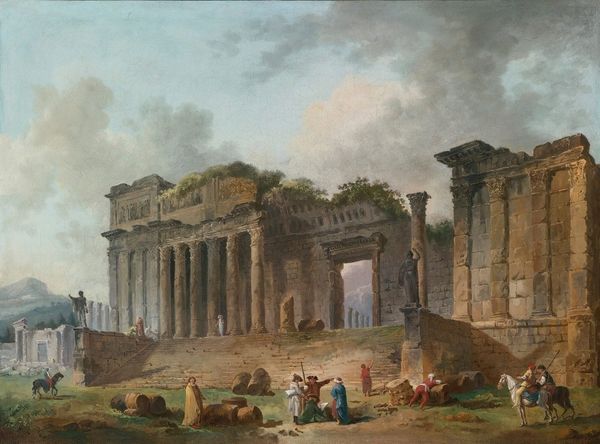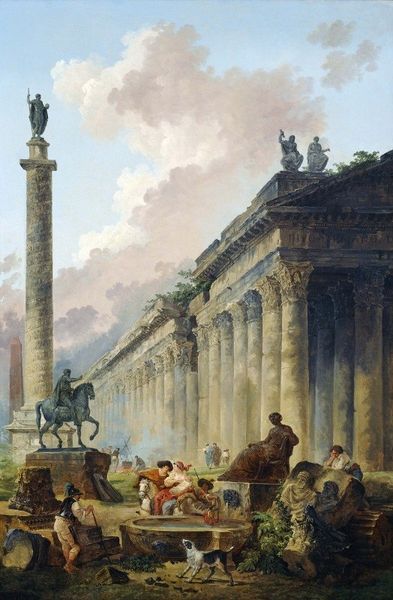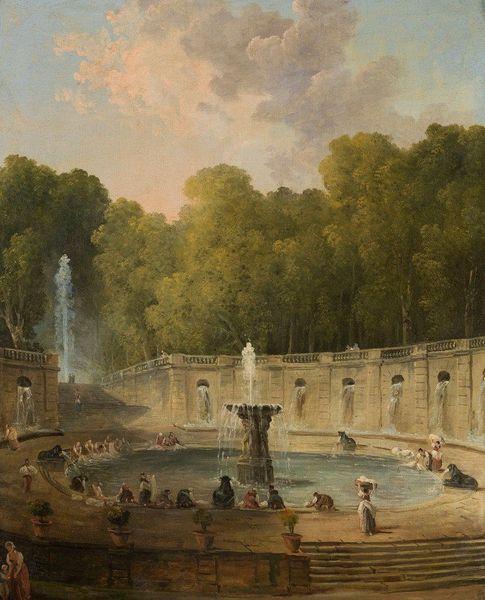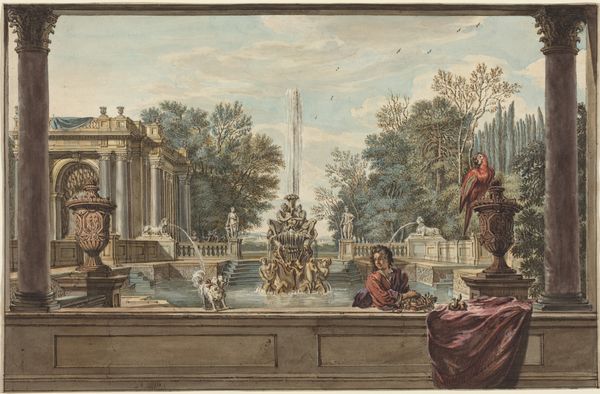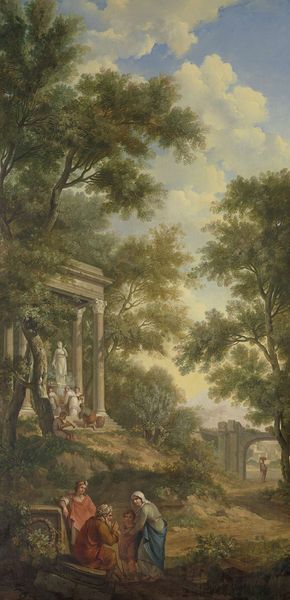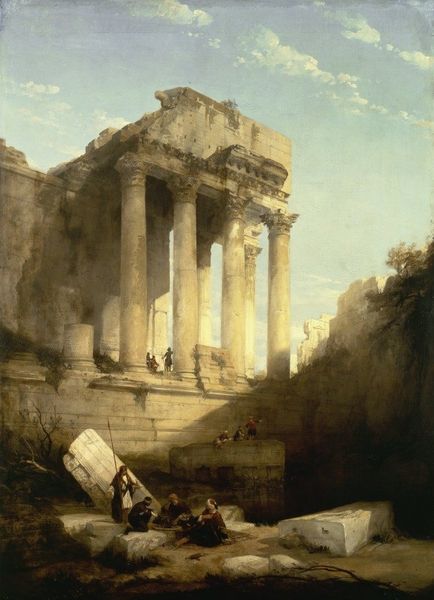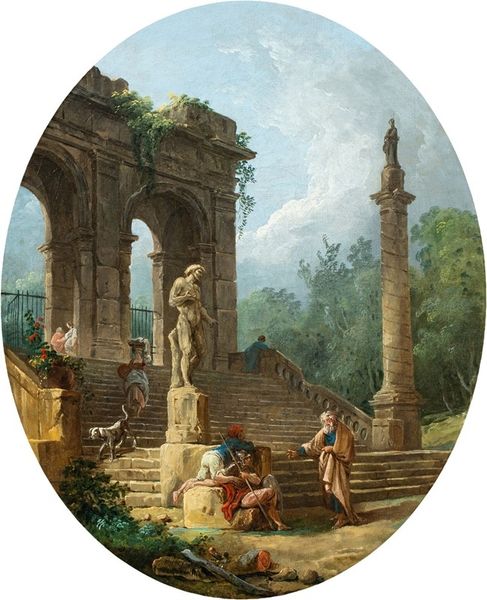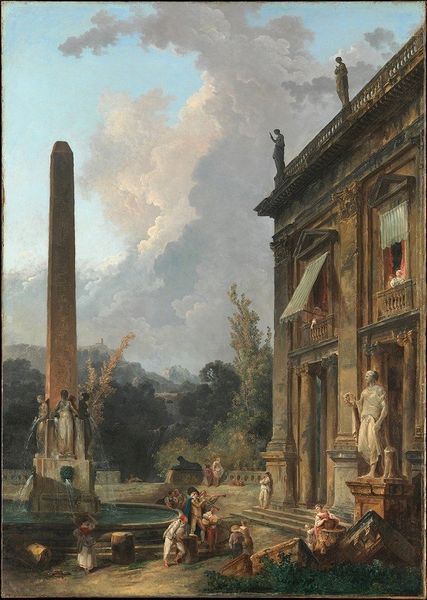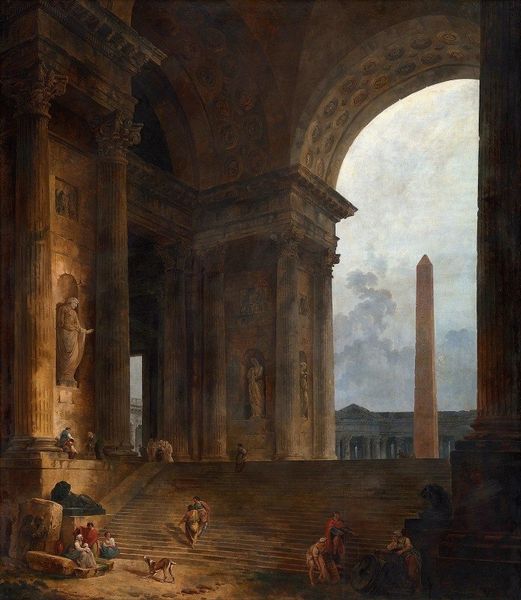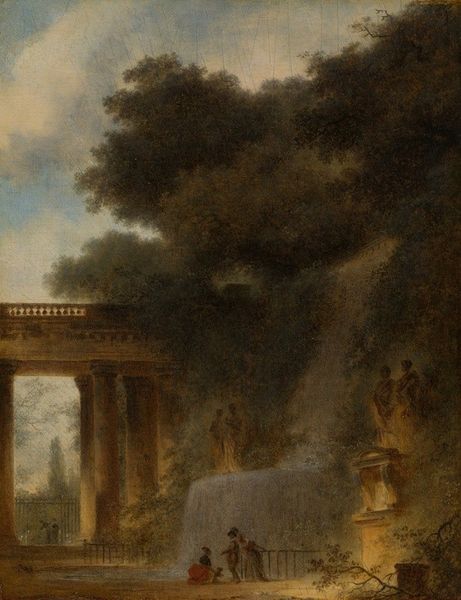
painting, oil-paint
#
neoclacissism
#
painting
#
oil-paint
#
landscape
#
oil painting
#
romanticism
#
genre-painting
#
history-painting
Copyright: Public Domain: Artvee
Curator: Editor: So here we have Hubert Robert's oil painting, "A Banquet in the Ruins of a Temple," created around 1795. The first thing that strikes me is this odd juxtaposition: this scene of merriment and feasting is set among crumbling classical architecture. What are your thoughts on it? Curator: Well, considering the period, it invites us to reflect on what materials were available and the methods employed. How do you see the raw materials and labor involved informing the narrative here, especially when paired with the decaying structure? Editor: I see your point. It feels like Robert is showing a specific kind of elite consumerism. A banquet, an artist using imported oil paint, a ruined temple transformed into a pleasure ground… There's an economy on display. It challenges traditional ideas of beauty. What was once grand is now a backdrop. Is that part of his intention? Curator: Precisely. It disrupts conventional notions of "high" art by blending genre painting with history painting, all underpinned by materiality. The grand history painting traditionally depicts significant events; Robert instead gives us what almost appears as scene, an artificial ruin appropriated by private labor and luxury, if you will. What does that combination say to you, given that France was emerging from its Revolution at this time? Editor: It’s kind of unsettling when you consider it through that lens. On one hand it reflects the continuation of old patterns despite the supposed revolution in French Society, yet on the other this shift in style is a subtle expression of those historical transformations. I'd never really considered landscape paintings to be so socially charged! Curator: They can offer invaluable insights. By centering our focus on process and material consumption, these landscapes reveal a broader scope and context.
Comments
No comments
Be the first to comment and join the conversation on the ultimate creative platform.
